
For hospitals, understanding indoor air quality is key to improving patient health, and sophisticated monitoring is crucial, explains Dave Lister, Healthcare Solutions Specialist at IAconnects.
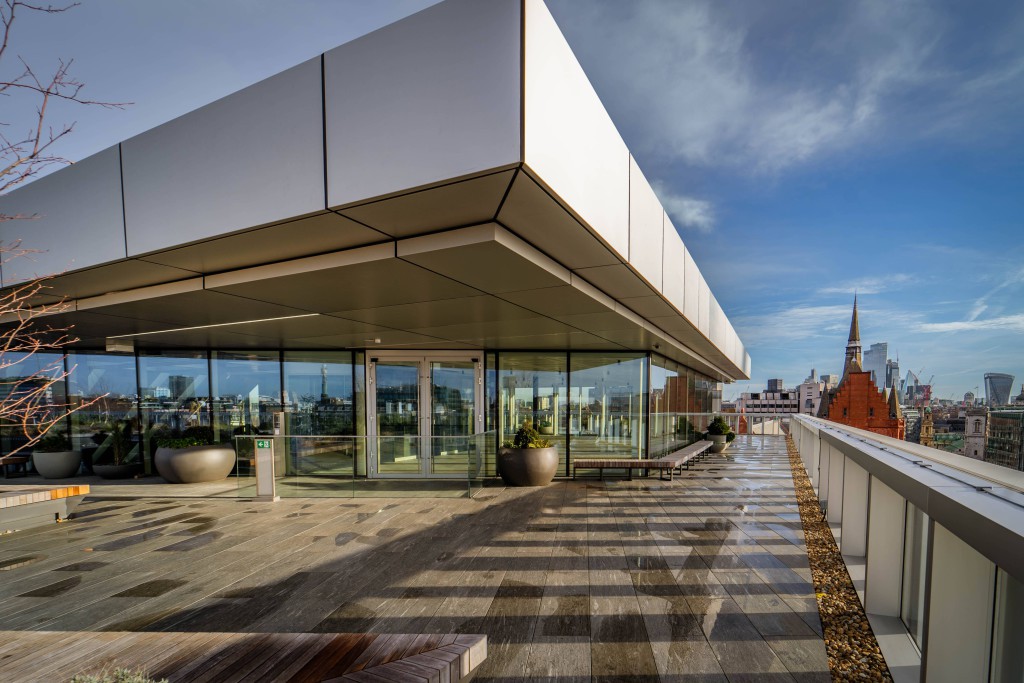
Smart technologies are reshaping the way buildings operate, enhancing efficiency, sustainability and occupant comfort. More importantly, they are playing a crucial role in fast-tracking the journey to Net Zero. Here, Kas Mohammed, VP of Digital Energy at Schneider Electric UK&I, discusses how intelligent buildings are driving this transformation.
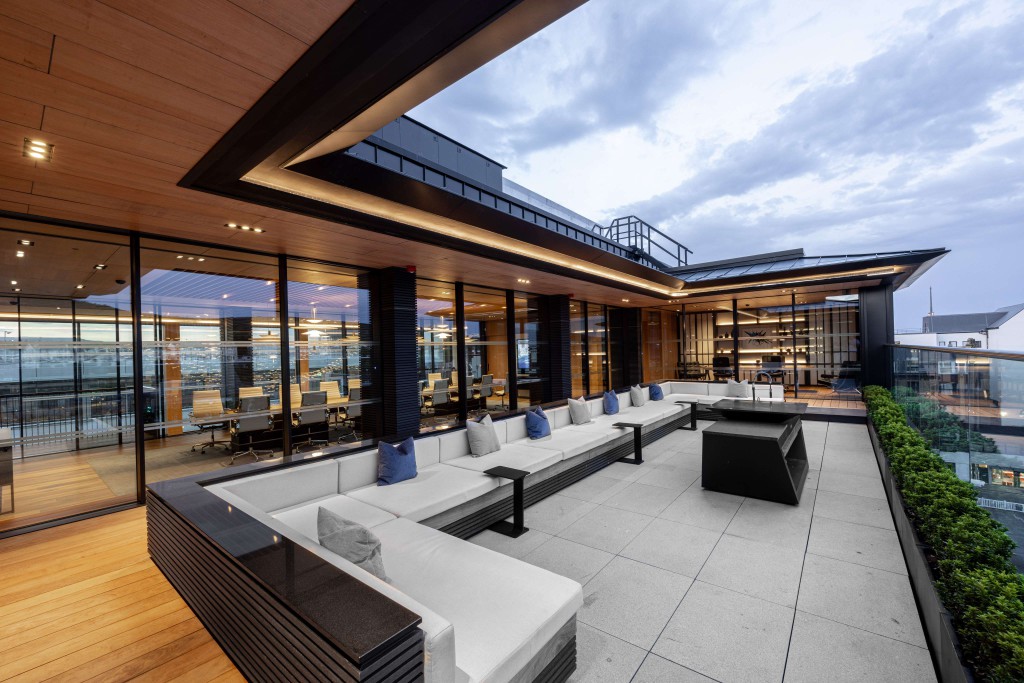
Iain Gordon, KNX UK Chair, discusses the issue of sustainability and adaptability facing building services engineers in modern construction.

AI and the smart buildings revolution
Charles Pelletier, Vice President, Product Management at Distech Controls, explains how product innovation that utilises AI technology to collect and respond to data is delivering highly efficient and human centric buildings.

The power of demand-controlled ventilation and smart technology for more energy efficient buildings
Only one-in-five buildings have an BMS system to regulate and oversee their inner workings, and so most commercial buildings operate at a Class C energy efficiency level. Stuart Smith of Zehnder looks at how to improve performance.

Moving from concept to reality
‘Smart Buildings’ are no longer something that simply conjures images out of science fiction movies, says Mark Sutcliffe of Lorne Stewart.

Digitised Buildings: What are they and why adopt?
Nick Robinson, Managing Partner at Beyond ESG, looks at how technological innovations are transforming our buildings, offering tangible commercial benefits that go beyond energy savings. Connected by IoT and supported by data science, the modern digitised building boasts unparalleled levels of control and monitoring.

Smart Controls are key to unlocking better building performance
Modern buildings are being designed and constructed for greater efficiency, sustainability, and decarbonisation in line with the industry-wide net zero approach – and due to this shift, every installed system being considered is under the microscope in terms of its performance.

An Integrated Approach with IoT Solutions by Jacob Blackwell of LMG

Making smart buildings smarter
Carla Sousa, Marketing Director at Chubb Fire and Security, gives her insight into how connected technologies are serving as a bedrock for smart buildings and how a new collaborative situational awareness tool can make buildings even smarter.

Putting the value on data in smart buildings
When we have data we can’t understand or contextualise, we may as well have no data at all. Mark Bouldin of Johnson Controls looks at how to make the most of your building data.
Michael Castle of Antenova Ltd takes a look at the wireless technology powering remote-controlled services in smart cities

The data making our buildings smarter
Andrew Hunter, Technology & Solutions Director at Chubb, explores how merged technologies and greater availability of data are making buildings smarter.

The future of buildings is smart
Lighting can be difficult to integrate, no matter the industry, yet it is an essential part of any building. Lighting used to be static and analogue and it did not pass data or communicate with other systems; yet with the rise of the Internet of Things (IoT) and as technologies evolve, this has created problems for the industry that were not previously considered.
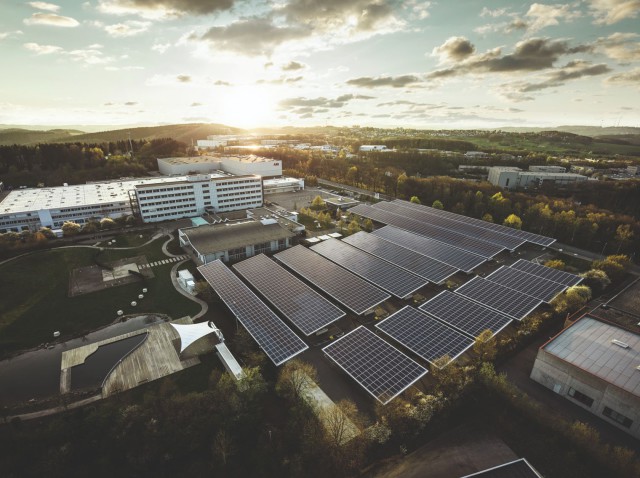
Decarbonising buildings is a huge task, but digital technologies, coupled with collaboration across sectors and stakeholders, can help make the vision of smart, sustainable infrastructure a reality, says Fabio Mercurio of ABB Smart Buildings.

The HVAC sector is undergoing a digital revolution that is set to transform how smart buildings are conceived, designed, and built. Indeed, the signs are already there. Tim Mitchell, Sales Director at Klima-Therm, explains

Realising sustainable demand through smart temperature control
With building sector emissions posing a major challenge to meeting climate commitments, contractors must consider efficient solutions that both reduce energy demand and keep occupant welfare in mind. Franz Huelle, Head of Technical at REHAU Building Solutions, discusses the potential for smart controls to ensure energy efficiency without compromising the end-user experience.

The need for interoperability in smart buildings
Faced with a competitive market for tenants, office landlords have turned to smart buildings to give them an edge. In addition to providing landlords with energy saving and operational performance improvements, smart buildings must provide a seamless user experience, which exceeds, or at least matches the home comforts employees enjoy while working remotely.
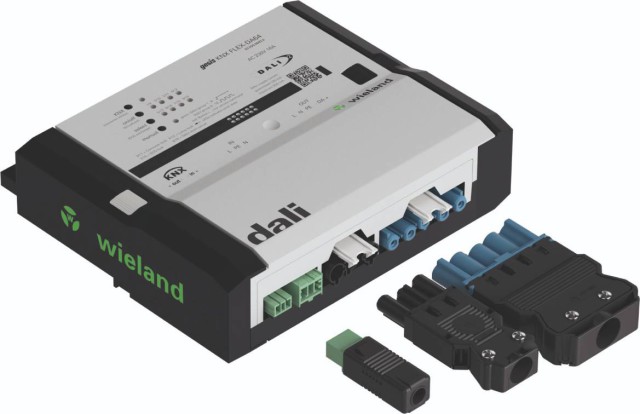
Gesis® FLEX now with DALI2 Gateway
Wieland Electric's established gesis® FLEX series is expanded with the new KNX DALI Gateway. It allows direct communication between the two interoperable and well-known systems, KNX and DALI 2. As a result, it communicates with devices from other manufacturers that are certified in these systems on both sides.

How Dali-based systems are assisting buildings to achieve smart optimum lighting control.
When decision-makers consider smart building technology in buildings one the first aspect that comes to front of mind is that of automatic lighting control. Good lighting is crucial to the successful functioning of any workplace and, also accounts for a large proportion of energy consumption.
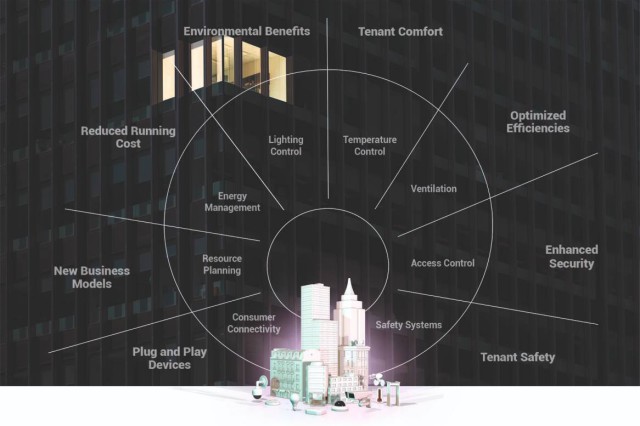
Is My Building Smarter Than me?
The question in the title is rhetorical, but in reality the buildings in which we work, play and even live are getting smarter says Jim White, CTO of IOTech
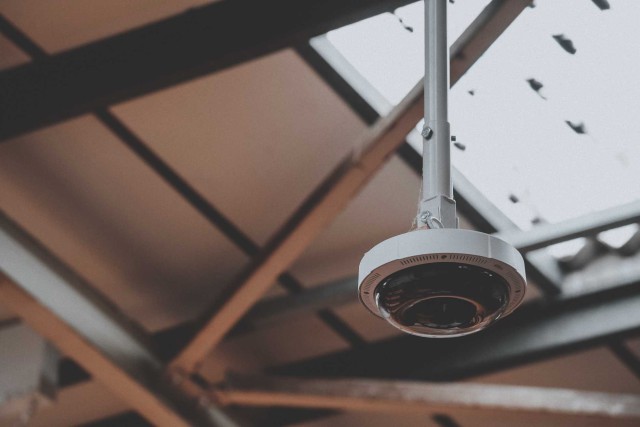
Forget the Office of the Future – The Time is Now
COVID-19 has caused a complete re-evaluation of how office spaces work. The previously glacial shift towards flexible working and smarter office spaces was suddenly turbo-charged as the “the office of the future” became “the office of now”.

The role of Haystack Tagging in enabling Plug-and-Play Controls
There’s a significant but underserved segment of the market, characterized by small square footage and low complexity commercial buildings. Collectively, this segment represents up to 40% of commercial energy costs.

Schneider Electric expands specification tool
The tool now includes Mechanical & Control section (BMS) section to meet building management needs

Smart buildings have made great strides in the last decade in making building systems more efficient, while simultaneously making occupants safer, healthier, and more productive. Darren Bindert of Syscomm looks to the future.

How can building owners develop safer, healthier and smarter building strategies, providing insight into just some of the solutions that can empower them to self-diagnose and identify potential shortcomings and to implement the most appropriate technologies to help mitigate risks both now and in the future? James Allardyce of Chubb examines the options.

Secure sites need secure monitoring
Secure sites need to be operational at all times without the risk of information breaches. Real time monitoring of critical infrastructure using the latest data collection and analysis tools can seem at odds with safety protocols – relying on cloud-based software to store information could leave these organisations open to cyber-attack.

Tom Harmsworth, MD of WeMaintain UK, points out what needs to be done first in making ‘London Smarter’

University campuses have always constituted their own micro-societies but by embracing the latest smart technology they can, in effect, evolve into mini smart cities that intelligently manage space occupancy and student/staff safety.

Dissecting the Role of Edge AI within a Smart Building
Chris Penrose, COO, FogHorn explains the benefits of AI-enabled edge computing in a modern building.

Uwe Klatt of Disruptive Technologies looks at the role of Remote Monitoring in the future of Sustainable Buildings Management

Project Haystack is an open source initiative to streamline working with data from the Internet of Things. Scott Muench of J2 Innovations, a founding member of the project, says open frameworks will ‘glue’ systems together so we can make buildings more efficient, sustainable, and better for occupants.

Karl Walker of Beckhoff and Mike Brooman of Vanti discuss where we might be going wrong with smart buildings

Prizes up for grabs as BCIA launches school competition
BCIA Launches Schoolz Out competition for young inventors.

Jon Belfield, President of the Building Controls Industry Association (BCIA), reflects on some of the key developments from 2018 and discusses the importance of good specification to ensure long term performance of a BEMS.

Nick Sacke describes the benefits of smart buildings – and the barriers we face in achieving more connected buildings.

Renu Chopra reports on trends in smart building technology and considers the gap between vision and reality.

Alpesh Trivedi believes the HVAC sector is on the cusp of an enormous technological revolution, driven by digitisation. He explains how it will impact on building services.

Karen Fletcher looks at the future of BACnet in the fast-moving world of the internet. Can this familiar protocol keep pace in the new world of smart buildings?
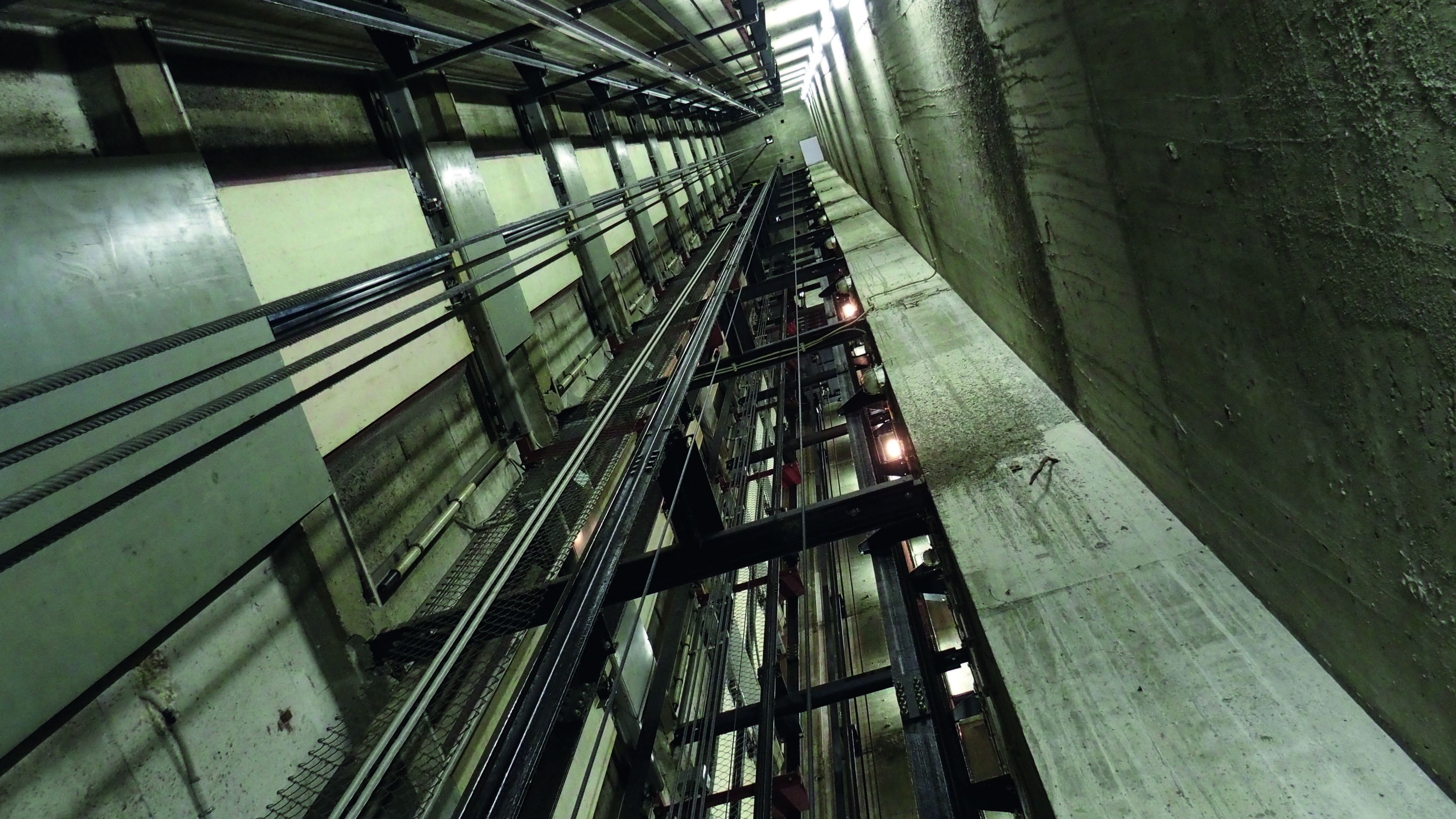
Nick Mellor explains how the humble lift is getting smarter and why this matters to building owners and users.

Iain Gordon explains why, even though proprietary equipment control systems may seem an easy choice for specifiers, taking the open approach is more effective and efficient in the long-run.

Learning the value of construction
UK universities have invested heavily in their building stock. This month’s Round Table, sponsored by Trend Controls, discusses the importance of high quality buildings for this market, and the challenge of operating them efficiently.

Make building controls a priority, not an afterthought…
Bill Gates is quoted as having said “People don’t know how to want the things we can offer them”. For example, some things we now consider normal were once considered as unnecessary luxuries – early electric lights were switched on/off at the fitting meaning you would bump into furniture as you fumbled for the switch. When it was realised that a switch could be fitted just inside the door, for a time, many people considered this as a needless indulgence.

Imagine being able to harness the sun’s energy during the day for use during the night. With a battery storage system this is exactly what can happen. During the day a roof mounted photovoltaic system can gather electrical energy from the sun then, at night the occupants can draw on the electrical energy stored in the battery.

Smart thinking for future-proofing
Smart building technology cannot stand still: it has to be able evolve throughout a building’s lifetime if it is to continue adding value. Commercial tenants may need to set up for a completely new way of working as their business changes. New sustainability and energy efficiency targets may be imposed to manage costs and/ or to manifest corporate social responsibility.

The importance of the distribution transformer should not be misunderstood – the technology plays a significant, but sometimes underestimated, role in the high voltage energy infrastructure of facilities across the country. Distribution transformers are energised 24 hours a day, seven days a week. Even when then don’t carry a load they ensure buildings receive the correct electricity supply that is safe for use and fit for requirements.

Proving the value of renewables
Installations of renewable energy generation have been declining month on month since February 2016. One of the main reasons behind the decline is due to a lack of understanding and inability to evaluate the feasibility of all renewable options available to a specific building.

Abtec Building Technologies has recently completed a project to install a connected lighting system at a newly constructed brick factory in the East Midlands. Ibstock Brick, an Ibstock PLC company, has built a new factory capable of producing 100 million bricks a year, helping to address the UK’s housing shortage.

Innovation leads the way to comfort and efficiency
Jon Belfield, President of the Building Controls Industry Association explores how connected buildings can help to achieve a substantial reduction in carbon emissions and why innovative methods increase energy efficiency while also reducing running costs.

Managing multiple buildings with controls can only be achieved by using the correct hardware, an effective protocol and a collaborative design approach, argues Paul Foulkes.

Fujitsu General Air Conditioning becomes GENERAL HVAC Solutions UK
Fujitsu General Air Conditioning (UK) has become GENERAL HVAC Solutions UK from 1st January 2026, strengthening its long-term position within the global Paloma Rheem Holdings (PRH) group.
Market performance indicates encouraging signs for future of BEMS sector
Highlighting an increased desire from property developers, architects and designers to decarbonise the UK’s building stock through the specification and implementation of building controls and automation, the building energy management systems (BEMS) market showed steady progress in Q3 – rising 2.6% compared to the previous quarter.






